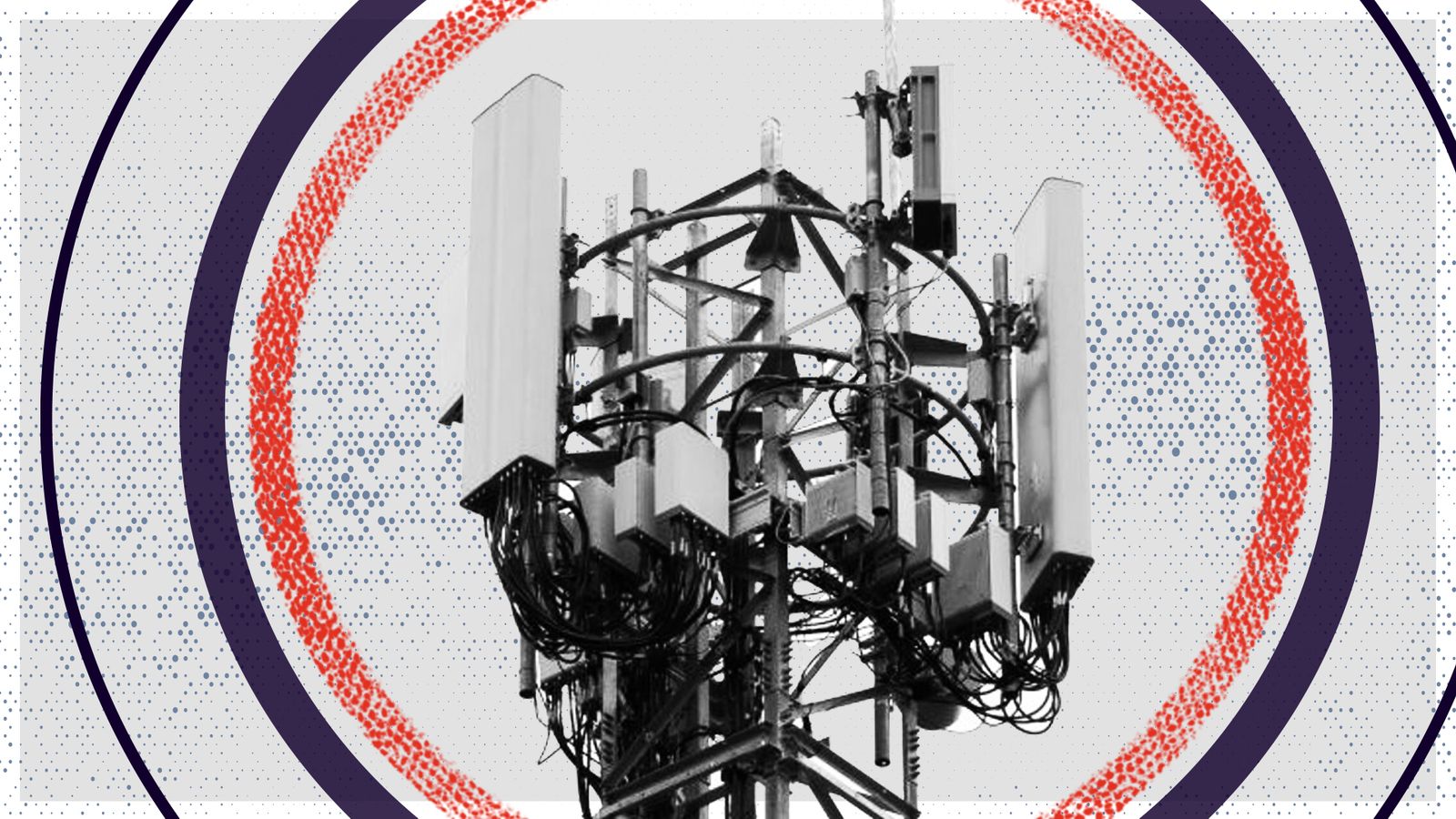It is a figure that, more than 20 years on, remains jaw-dropping.
In April 2000, the then-chancellor, Gordon Brown, succeeded in extracting £22.5bn from mobile phone operators when he auctioned off 3G spectrum.
Mr Brown was just about the only one who made any money from the auction.
The five operators – BT Cellnet (now O2); One2One and Orange (which now make up EE), Vodafone and the business now known as Three UK – failed to recoup the sums they splashed out for licences and the billions more they spent on 3G roll-out.
Today’s chancellor, Rishi Sunak, must look back at Mr Brown’s experience with a degree of envy.
The latest auction of 5G spectrum, completed on Wednesday, saw the Treasury rake in a mere £1.36bn – only a smidgen higher than the £1.1bn reserve price and well short of analyst expectations.
Together with the proceeds of an earlier auction in April 2018, in which the Treasury raised £1.35bn, it means the government has raised only marginally more than the £2.3bn collected in February 2013 for 4G spectrum.
That was a huge disappointment at the time and not least for another of Mr Sunak’s predecessors, George Osborne, who had budgeted for much more.
In terms of who spent what in this latest auction, EE – now owned by BT – was the biggest payer, splashing out a total of £452m.
Three, owned by Hong Kong’s CK Hutchison, paid £280m.
O2, which is currently owned by Telefonica of Spain but which is in the process of merging with cable operator Virgin Media, paid £168m. Vodafone, which was the biggest spender in the 2018 5G auction, paid £176.4m.
Investors regard it as a positive outcome. Shares of BT were more than 6% higher at one point, making it the biggest gainer on the FTSE 100 today, while shares of Vodafone were also higher.
It reflects relief at the comparatively low cost paid by the operators. Expectations were raised for the sums they would have to pay when, in June 2019, mobile operators in Germany paid a combined €6.55bn for 5G spectrum in a drawn-out auction process that lasted three months and that, according to the country’s biggest player Deutsche Telekom, left “a bitter after taste”.
Marc Allera, chief executive of BT Consumer said: “EE has secured vital new spectrum in this auction which, when rolled out into the network, will allow us to grow our position as the UK’s number one 5G network.
“EE was first to launch 4G and 5G, and this auction outcome is great news for our network, our customers and BT.”
This is not the Treasury’s last opportunity to make money out of 5G.
The next stage of the auction is the so-called ‘assignment’ stage, a single bidding round, in which the mobile operators bid for frequency positions for their airwaves.
But the low sum raised from this auction is not necessarily bad news.
The 3G auction, with the benefit of hindsight, was a disaster for the UK.
Having to pay so much for the licences deprived the mobile operators of capital that they needed to build out their networks.
That ultimately wounded the UK.
Countries that instead gave away 3G spectrum or sold it for comparatively little, such as Japan, won a technological lead over those which made the operators pay up. Meanwhile, because they had to borrow heavily to buy 3G spectrum – the interest on that debt wiping out profits – and made heavy use of capital allowances in building their 3G networks, the mobile operators ended up paying little or no tax in the UK for many years afterwards.
Effectively, the mobile operators ended up clawing back the money Mr Brown prised from them.
So every pound that the mobile operators have not paid in the latest auction is a pound that can be ploughed instead into 5G roll-out.
That is crucial because, with the UK government having barred the Chinese equipment supplier Huawei from 5G, building 5G networks is going to be a lot more expensive than would otherwise have been the case.
And the speed and effectiveness of 5G roll-out will be essential to economic growth during the coming decade – something grasped by every country in the world now racing to roll out 5G.
It is why China, for example, allocated its 5G spectrum rather than auctioning it off. It is why Australia set a very low reserve price when it auctioned 5G spectrum. It is also why South Korea, one of the first countries to sell 5G spectrum, sought to limit the sums bid by mobile operators.
Accordingly, the UK government should not be too disappointed. A low return for 5G rights could yet result in faster and more efficient 5G roll-out.






















